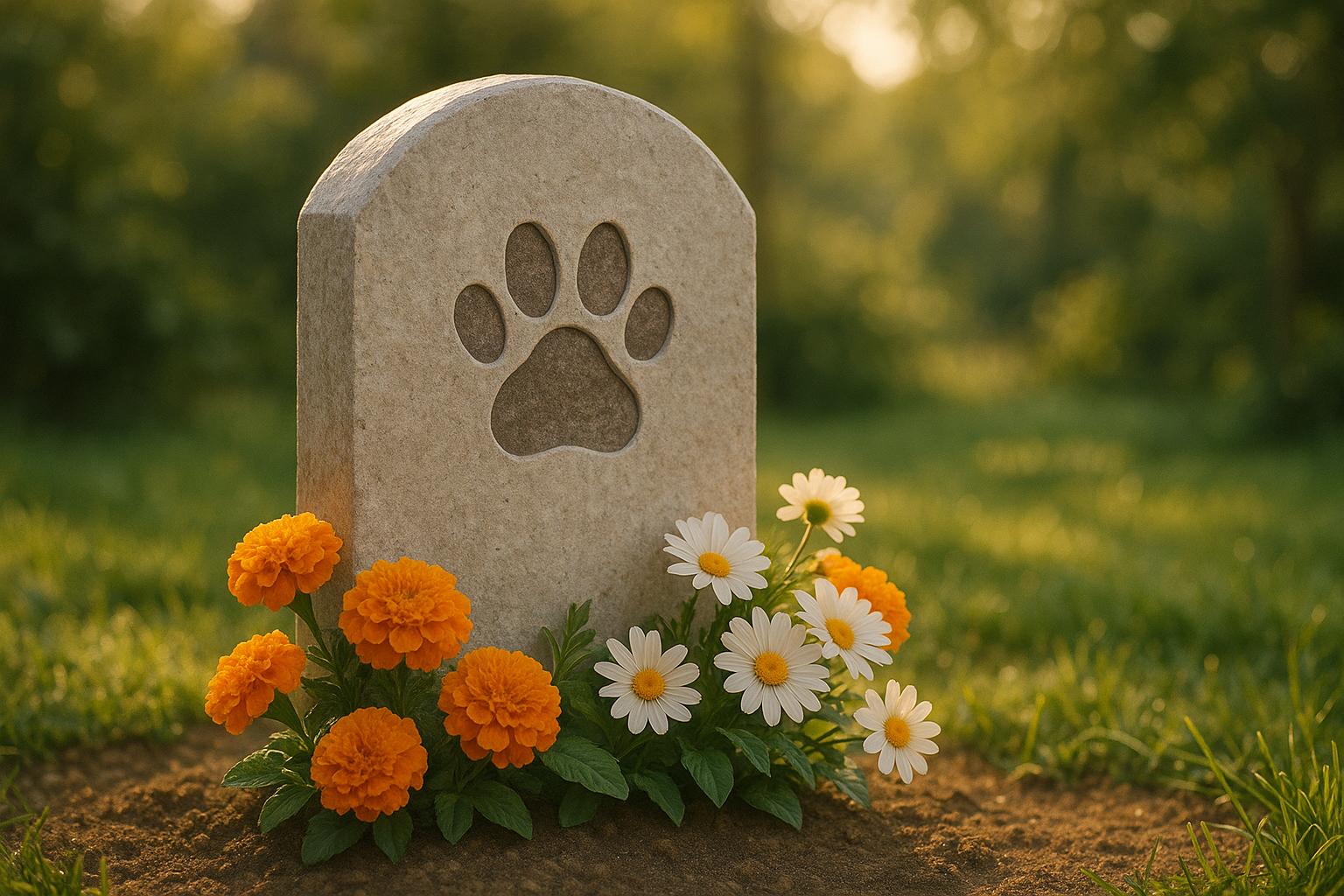Deciding whether to euthanize an old dog is an emotionally charged choice that many pet owners face. Ultimately, euthanasia may be the kindest option when a dog experiences significant suffering and has a poor quality of life. Recognizing the signs that your dog may be in pain is crucial, as this knowledge can guide you towards the right decision for your beloved pet.
You may find yourself grappling with guilt, uncertainty, or fear when considering this option. It's important to remember that your dog's wellbeing should be a priority during this difficult time. Animal Aftercare offers compassionate support, ensuring that you have access to 24/7 Pet and Equine Cremation and Euthanasia services. This means you can make these critical decisions with the help of professionals who are dedicated to easing your burden and honoring your pet's life.
As you explore the complexities surrounding this topic, you will gain insights that empower you to act in your pet's best interests. You owe it to yourself and your dog to understand all the aspects of euthanasia, including its process and the emotional implications of that choice.
Understanding Dog Euthanasia
Making the decision to euthanize your dog is challenging. It involves assessing their quality of life and considering their suffering. This process often includes discussing options with your veterinarian.
Euthanasia typically involves administering sodium pentobarbital, a painless drug that induces a deep sleep, followed by cardiac arrest. This method ensures a humane and peaceful transition for your pet.
Signs that may indicate a decline in your dog's quality of life include:
- Persistent pain that cannot be managed
- Loss of appetite or drastic weight loss
- Difficulty standing or walking
- Loss of interest in activities they once enjoyed
Open discussions about pet euthanasia can provide comfort. It's essential to consider both your feelings and your pet's wellbeing during this time.
Animal Aftercare offers 24/7 Pet and Equine Cremation and Euthanasia services, providing compassionate support for you and your family. With professionals available around the clock, you can focus on your pet’s final moments.
When the time comes, knowing you have a caring team by your side can ease the process. Choosing Animal Aftercare means you are selecting a provider dedicated to honoring your pet's life with dignity.
Evaluating Quality of Life
Assessing the quality of life for your aging dog is crucial in determining the right time to consider euthanasia. This process involves understanding various aspects of your dog’s health and well-being through specific symptoms and evaluation methods.
Quality of Life Assessment
To evaluate your dog’s quality of life, consider using the HHHHHMM scale. This scale helps you assess different aspects of their daily existence:
- HURT: Assess pain levels. Has your dog shown signs of discomfort?
- HAPPY: Look for moments of joy. Do they still enjoy activities they once loved?
- HAM (Mobility): Evaluate their ability to move. Are they struggling to walk or rise?
- HUSH (Hygiene): Observe their grooming habits. Are they unable to keep themselves clean?
- HANG (More Good Days than Bad): Do they have more good days than bad?
- MISTAKEN (Cognitive Function): Consider any signs of confusion or withdrawal.
Regular observations using this scale can guide you in making an informed decision. It provides a clear framework to assess whether they are enjoying life or are suffering unnecessarily.
End-of-Life Symptoms in Dogs
Recognizing end-of-life symptoms in dogs can inform your decision-making regarding euthanasia. Common signs include:
- Increased Pain: Look for signs of persistent pain despite medication.
- Loss of Appetite: A significant decline in eating or drinking can indicate discomfort.
- Lethargy: Reduced interest in activities or prolonged sleeping may suggest a decline.
- Incontinence: Difficulty with bladder or bowel control may affect their well-being.
- Seizures or Disorientation: These neurological symptoms can signal serious distress.
These indicators can help you determine if your dog is nearing the end. When facing this challenging time, you can rely on Animal Aftercare for compassionate support with 24/7 pet and equine cremation and euthanasia services. We are here to ensure a gentle farewell for your beloved companion.
Making the Decision
Deciding to euthanize your old dog can be heart-wrenching. Assessing your pet’s quality of life is essential in this process.
Consider the following indicators:
- Pain Levels: Is your dog in constant discomfort?
- Mobility: Can they move around comfortably?
- Appetite: Are they eating and drinking normally?
- Enjoyment: Do they still engage in activities they love?
Reflect on whether your dog is having more bad days than good. This can help guide your decision.
Having open conversations with your veterinarian can provide clarity. They can evaluate your dog’s health status, helping you understand your options for end-of-life care.
You might also want to consider the emotional aspect. It’s common to feel guilt and sadness, but remember your pet's well-being is paramount.
When the time comes, choose a compassionate service. Animal Aftercare offers 24/7 Pet and Equine Cremation and Euthanasia, ensuring your furry friend receives the utmost care during their final moments.
Their team understands the emotional weight of this decision and provides support throughout the entire process.
Ultimately, trust your instincts. Making a choice based on love and compassion for your old dog is an essential step in ensuring they find peace.
Dog Euthanasia Procedures
The euthanasia process typically involves a veterinarian administering sodium pentobarbital, a medication that safely induces sleep and then stops the heart. This method ensures your dog experiences minimal discomfort.
Before the procedure, your veterinarian will:
- Discuss your pet's condition and prognosis.
- Answer any questions you may have.
- Provide guidance on making the best decision for your dog.
During the procedure, you may choose to be present. Many pet owners find comfort in holding their dog or speaking to them during this time. Your veterinarian will ensure your pet is relaxed, often providing a tranquil environment.
After administering the medication, the effects are usually quick. Your dog will fall asleep peacefully, followed by the cessation of breathing and heartbeat.
Animal Aftercare specializes in providing compassionate and respectful pet euthanasia services, ensuring your pet's final moments are handled with care. We understand the emotional difficulty of this decision and are here to support you.
Post-euthanasia, you can consider options for your pet's remains. Animal Aftercare offers 24/7 pet and equine cremation services, providing you with flexibility and peace during this tough time. Your relationship with your pet deserves to be honored with dignity, and we're here to help.
Aftercare and Memorialization
After the difficult decision to euthanize your old dog, taking care of aftercare and memorialization is an essential step in honoring your pet's memory. You have several options available that can help preserve the bond you shared.
Cremation Services
When considering cremation, you may choose between individual or communal options. Individual cremation ensures that you receive your dog’s ashes in a personalized urn, allowing for a private keepsake of your beloved pet. This option provides peace of mind, knowing that your pet is treated with respect and dignity.
On the other hand, communal cremation means your pet will be cremated along with others. In this case, the ashes are not returned to you, as they are typically scattered or disposed of. While it can be a more economical choice, it may not hold the same personal significance for you.
Animal Aftercare specializes in providing compassionate 24/7 Pet and Equine Cremation services, ensuring that you have support when you need it most.
Paw Print Keepsakes
A paw print keepsake can serve as a tangible reminder of your dog. This sentimental option captures the unique imprint of your pet’s paw, preserving a piece of their presence. It can be created using clay or wax, allowing you to display it in your home as a cherished memento.
Some services, like Animal Aftercare, offer paw print kits as part of their aftercare packages. This makes it easier for you to create a lasting memory while ensuring that you have support during this emotional time. Having a physical reminder can provide comfort and solace as you grieve your furry companion.







